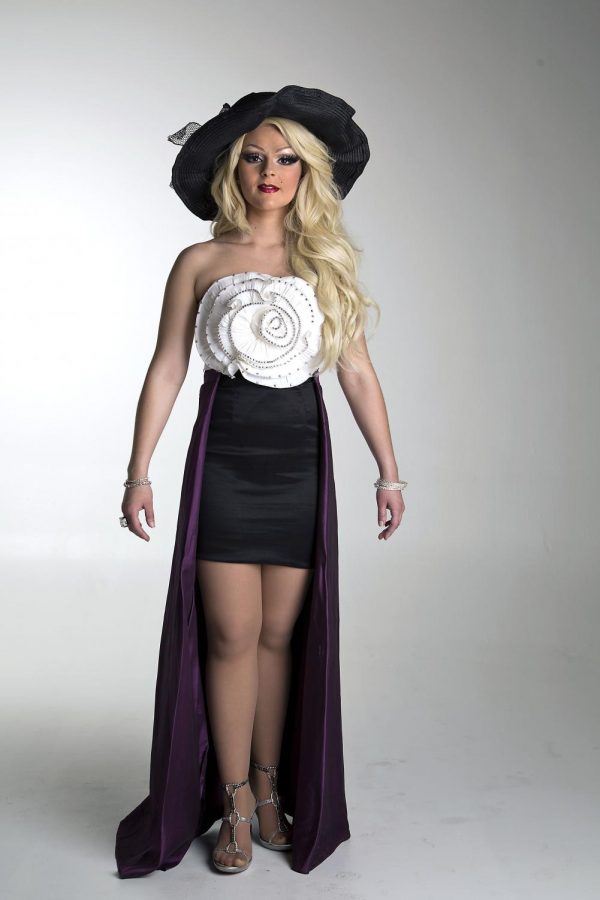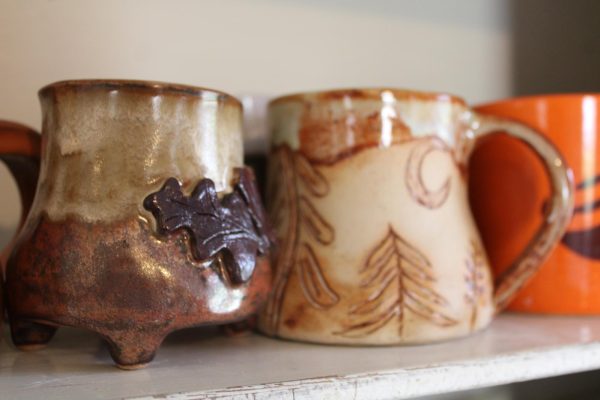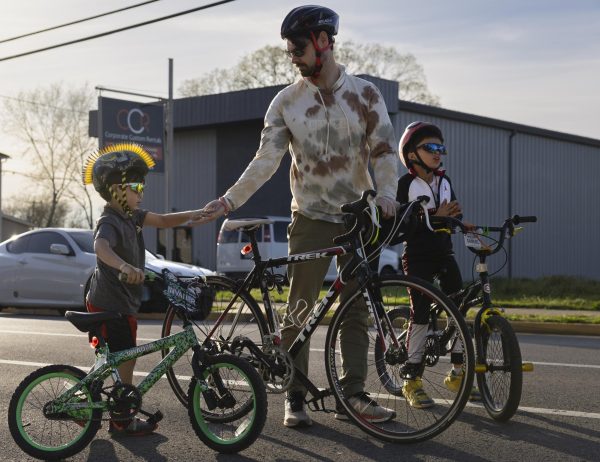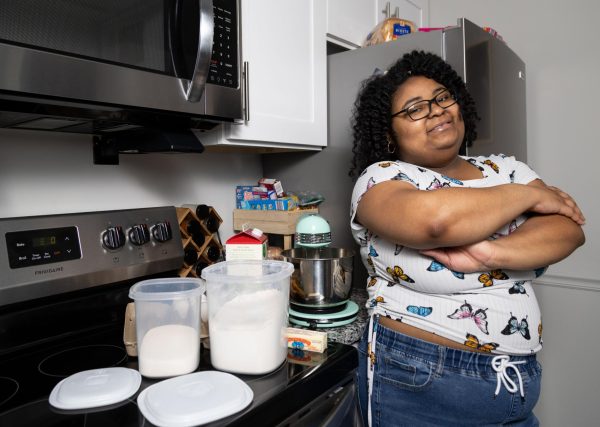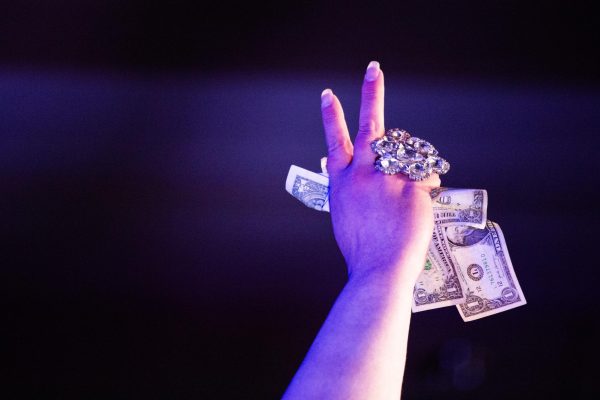Diva Doll: Senior shines as drag ‘diva’
May 5, 2015
Drag queens are makeup artists, costume designers, choreographers and stage performers all in one. With little or no help at all, these men spend hours transforming themselves into majestic pieces of art, all for the rush of one performance.
A major subset of the drag community are drag divas—biological women who live to be mistaken as their male drag queen counterparts.
Musical theatre major by day and “bio-queen” by night, senior EB McKinney performs in drag shows as a biological female.
McKinney has taken on the persona of a bio-queen—a female performance artist who adopts the typical style of male drag queens—at Play Dance Bar in Nashville.“Girls in this region don’t call themselves bio-queens or faux-queens, they call themselves divas and get insulted when someone calls them anything else,” McKinney said. “I prefer for someone to call me a bio-queen because as a performer it’s a privilege to hold the title of queen.”
McKinney’s stage name is Monroe Fitzgerald because Marilyn Monroe and F. Scott Fitzgerald inspire her.
“Marilyn Monroe stood for feminism, women’s empowerment and bringing sexuality into a positive light during a time when none of those ideas were accepted yet,” McKinney said. “That’s kind of what I want to do in drag. I want to bring feminist thought into the drag setting, which is absolutely unheard of.”
McKinney’s former partner introduced her to the drag lifestyle three years ago. She has now been performing for more than two years.
Amber Bryant, McKinney’s girlfriend of 10 months, met her through drag and said “something about her screamed performer.”
“I think it’s commendable to be honest,” Bryant said. “She is using her passion for theater and the stage to venture into a new avenue of expression. Being a bio-queen allows her an outlet that perhaps musical theater doesn’t. It’s allowing her to combine her passions within and outside of her career into a new form.”
Despite the new, McKinney still has the utmost respect for the original queens, she said.
“I have always had the utmost respect for drag queens. I think it is a forgotten and disrespected art form,” says McKinney. “The time, dedication and money that these men sacrifice to perform is outstanding.”
At first, McKinney worried becoming a bio-queen would be a distraction from school, but she now feels it has prepared her for the real world.
“If you cannot handle it, then you should do something else,” McKinney explained. “That is kind of harsh, but it is the way the world works. If you do not have the guts and willpower, then step aside and let someone else do it.”
Fiona Mowbray, performing arts and international business double major, has experienced, firsthand, McKinney’s evolution from a musical theater performer to bio-queen over the last four years.
“In my opinion, musical theater and drag go hand in hand,” Mowbray said. “There is still this prejudice that drag is not an art of the same caliber as theater, but that’s starting to change.”
Putting on a drag performance takes time, dedication and extreme creativity. In preparation for each number, McKinney begins by choosing music that will show her belief in feminism and desire to take back her sexuality.
“I try to choose songs that show women’s empowerment, independence, and bring a positive or powerful message about women and their bodies,” says McKinney.
After she chooses the perfect song, McKinney spends countless days picking through secondhand and craft stores to find the perfect costume to highlight her performance.
“I spend two or three days shopping around Goodwill, Hobby Lobby, Michaels and whatever I can find online that is cheap because I am ballin’ on a budget,” McKinney said.
However, McKinney says the most important element of her costume is the shoes she wears.
“I have one pair of shoes that I call my dance shoes,” explained McKinney. “If I’m doing moves like drop splits, death drops, turns, leaps or anything like that, I will always wear those shoes— even if they don’t match my outfit. They are my character heels.”
A typical drag show takes place in a bar or club and audience members have the opportunity to converse with the performers and give them feedback.
“It’s like going to the club or going out with your friends—with a twist,” exclaimed McKinney. “You get to see all of these unique performances and immerse in the experience. If you like the performer, its drag etiquette to give him or her a tip.”
McKinney’s favorite part about being a bio-queen isn’t performing onstage, but helping and learning from other drag queens.
“I beg the other queens to watch them do their makeup on their show nights, just to see how they do it and try to incorporate what they do in my look,” McKinney says.
As long as her body allows it, McKinney will continue to perform as a bio-queen.
“I am also pursuing an acting career in musical theater, film and television, but drag will be equally important to me,” explained McKinney. “So I will have two careers instead of one.”
Next year, McKinney plans to compete for the national title of Miss Diva USofA and to continue to entertain.
“In the future, I would like to continue performing in larger venues, make an established name for myself and be an outlet for others who are thinking about becoming a part of the drag world,” McKinney explained. “There is room for all kinds of people in drag because we are all different.”

